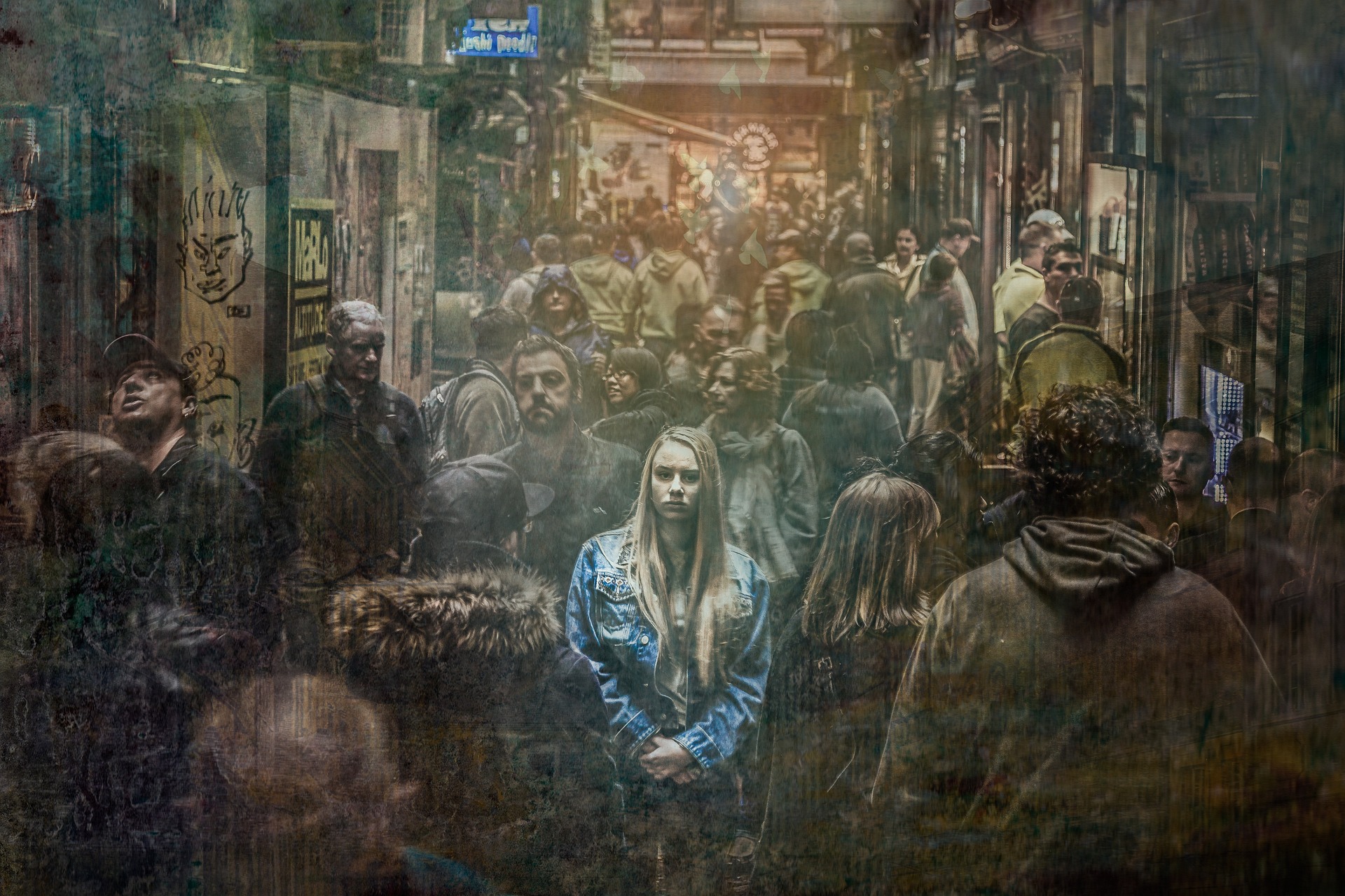In the grimy underbelly of modernity, where the human soul is often perceived as ground into the dust of industrial progress, T.S. Eliot’s seminal poem Preludes stands as a searing indictment of capitalist alienation. Through a tapestry of fragmented body parts and a squalid urban landscape, Eliot masterfully paints a portrait of profound dehumanization that resonates deeply with the Marxist critique of commodification and exploitation. This essay delves into the poem’s evocative imagery of dismembered selves and pervasive urban decay, exploring how Eliot’s portrayal of the modern city reflects the brutalizing and fragmenting effects of capitalism on the human psyche and society.
I. The Reification of the Self: From Subject to Object
Eliot’s Preludes commences with a series of stark, fragmented images that immediately establish a tone of decay and disposability: “grimy scraps,” “withered leaves,” and “newspapers from vacant lots.” These opening lines not only evoke a sense of urban detritus but also subtly introduce the poem’s central theme of alienation. The city, with its “dingy shades” and “sawdust-trampled streets,” is rendered as a relentless mechanism that reduces human beings to mere cogs in the machinery of capitalism. The insistent repetition of “six o’clock” further underscores the monotony and mechanization of daily life, where time itself becomes an oppressive tool, dictating the rhythms of an unfulfilling existence.
The poem’s pervasive use of synecdoche—”muddy feet,” “yellow soles of feet,” “soiled hands”—serves to powerfully emphasize the commodification of the individual. These disembodied body parts suggest that the person is no longer a holistic being but rather a collection of interchangeable components, each serving a specific, often menial, function within the capitalist system. This profound fragmentation directly mirrors Marx’s concept of reification, wherein social relations are obscured and distorted by the seemingly objective relationships between commodities. As Georg Lukács elaborated, reification transforms human qualities and relations into objective things, leading to a dehumanized existence where individuals experience themselves as objects rather than active subjects. In this process, individuals are stripped of their inherent humanity, becoming alienated from their labor, their fellow beings, and ultimately, themselves.
II. The Demolition of the Whole: Urban Squalor as Capitalist Decay
Eliot’s depiction of the modern city is one of pervasive degradation and decay, a direct consequence of unchecked capitalist expansion. The “grimy scraps” and “withered leaves” that litter the streets are not merely literal debris but potent symbols of a society that has forsaken its moral and spiritual compass in pursuit of material gain. The “vacant lots” and “broken blinds” reflect the profound physical and spiritual emptiness that pervades urban life under capitalism. These images collectively evoke a sense of desolation and abandonment, suggesting that the city, much like its inhabitants, has been hollowed out and rendered desolate by the insatiable demands of industrialization and profit.
The sensory details, such as the “faint stale smells of beer” and “sawdust-trampled streets,” further immerse the reader in an environment where the very air is tainted by the excesses and vices fostered by a capitalist ethos. The “thousand sordid images” that constitute the soul of the city dwellers highlight the moral decay and spiritual bankruptcy that inevitably result from a system that prioritizes profit accumulation over human well-being and dignity. This urban squalor, therefore, functions as a tangible manifestation of the societal decay inherent in a system driven by exploitation.
III. Fragmentation of Being: The Alienated Individual
In the third section of Preludes, Eliot shifts his focus to the individual, presenting a character whose very existence is marked by profound alienation and fragmentation. The line “You curled the papers from your hair” suggests a disengagement from the self, as if the individual performs actions mechanically, devoid of genuine engagement or consciousness. This mechanical existence aligns with Marx’s concept of “alienated labor,” where the worker is estranged from the product of their labor, the act of production, their species-being, and other human beings. The recurring imagery of “yellow soles of feet” and “soiled hands” reinforces the notion of a person whose body has become a site of relentless exploitation and degradation, a mere instrument in the capitalist production process.
The powerful imagery of the “thousand sordid images” constituting the soul further underscores the profound fragmentation of the self. These images represent the myriad, often unpleasant, facets of a life lived under the oppressive conditions of capitalism, each one a stark reflection of the alienation and dehumanization experienced by the individual. The soul, once envisioned as whole and unified, is now a fractured collage of sordid fragments, mirroring the disintegration of the self in a capitalist society that relentlessly commodifies every aspect of human existence, reducing it to transactional value.
IV. The Capitalist Machine: Time as Oppressor
Eliot’s strategic repetition of “six o’clock” throughout the poem serves as a relentless reminder of the mechanical and oppressive passage of time under capitalism. Time, traditionally a natural rhythm of life, is transformed into a tool of oppression, dictating the rigid routines and constrained rhythms of the individual’s existence. The “masquerades” that time resumes suggest that individuals are merely playing prescribed roles, performing tasks dictated by the capitalist system, largely devoid of genuine agency, purpose, or authentic self-expression.
This mechanization of time reflects the broader mechanization of life itself under capitalism, where individuals are reduced to interchangeable cogs in a vast, impersonal machine. Their lives are dictated by the relentless demands of production and profit, leaving precious little room for individuality, creativity, or self-actualization. This ceaseless cycle of work and consumption inevitably leads to a pervasive sense of alienation, despair, and existential emptiness, trapping individuals within a system that values output over intrinsic human worth.
V. Conclusion: A Marxist Reading of Preludes
Through its stark imagery of fragmented body parts, pervasive urban squalor, and the relentless march of time, T.S. Eliot’s Preludes offers a profound and incisive Marxist critique of capitalist alienation. The poem powerfully illustrates how capitalism reduces individuals to mere objects, systematically commodifying every aspect of human existence and leading to the profound fragmentation of the self. The decaying urban landscape, marked by degradation and spiritual emptiness, serves as a poignant metaphor for the moral and spiritual bankruptcy that inevitably results from a system that prioritizes profit above the fundamental well-being and dignity of its people.
Eliot’s portrayal of the modern city is thus far more than a mere depiction of physical squalor; it is a searing reflection of the deeper, more insidious effects of capitalism on the human soul. Preludes stands as a timeless reminder of the dehumanizing consequences of a system that relentlessly commodifies every facet of life, urging readers to critically recognize and actively resist the forces that seek to fragment and ultimately dehumanize the self.



